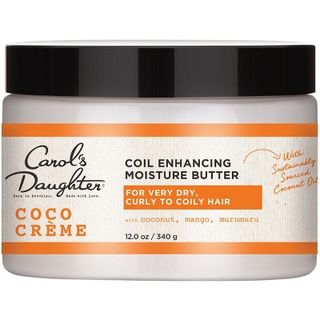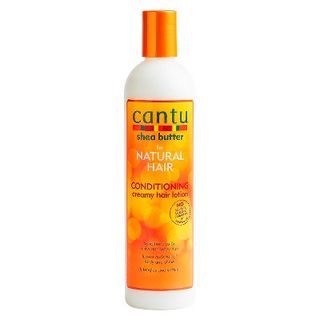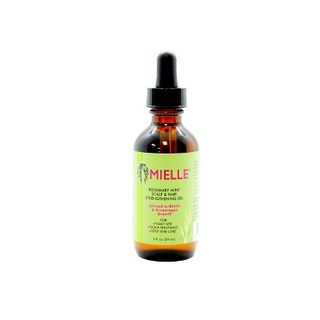
Peter GriffithGetty Images
If going natural taught me anything, it’s that I don’t know everything there is to know about my hair—no matter how many YouTube videos I watch. According to YouTube, I have a 4c hair type, and according to how coarse and dull my hair gets after some time (mainly due to my laziness), my hair veers toward the dry side. But what I didn’t realize is that I could adopt different methods and use a bevy of products to give my hair its best life, but none of that matters if I don’t understand my hair’s porosity.
In layman’s terms, hair porosity is the hair’s ability to retain and absorb moisture and affects how your hair responds to products and styles. Frizz and dryness are clear indicators of high porosity hair and can put a damper on the two-strand twist out you worked so hard to achieve. To break down high porosity hair even further, celebrity hairstylist and Cantu ambassador Angela Stevens explains everything you need to know.
How can you tell if you have high porosity hair?
First things first, there are three porosity categories: low, normal, and high. To determine your hair’s porosity, you can perform a porosity test by taking a strand of your hair and dropping it in a cup of water; if your hair sinks to the bottom, it’s highly porous. If your hair floats to the top, it’s low porosity, and if your hair just rests in the middle, it’s normal. But the easier way to figure out your porosity, Stevens says, is to think about how long your hair takes to dry. “If your hair takes a long time to dry, it typically means it’s highly porous,” she explains. “For example, if it takes a day to dry or it takes a longer time than average to blow dry your hair, then you know you have high porosity hair.”
This content is imported from YouTube. You may be able to find the same content in another format, or you may be able to find more information, at their web site.
How does it differ from low porosity hair?
“Low porosity hair has difficulty accepting moisture, the water repels off the hair and is usually very dry,” Stevens continues. When you have low porosity hair, water or products sit at the surface of the hair instead of penetrating into the strands. “Let’s say two girls got out of the pool and one’s hair dries in 30 minutes, that’s low porosity hair. But if the other girl’s hair takes hours, then that is high porosity hair.”
How do you treat high porosity hair?
When treating high porosity hair, it’s best to adopt the LCO method—liquid or leave-in conditioner, cream, oil, which refers to the sequence the products are to be applied. “Oils are the best way to lock in moisture into the hair. Argan oil, jojoba oil, and other oil blends help to seal moisture and considered essential oils, as they mimic the oils produced by the body and leave hair feeling softer,” Stevens explains.
High porosity hair also needs lots of protein. “High porosity hair usually needs more protein or oil to help seal in moisture. Some conditioners have more protein in them, so look for conditioners with keratin, wheat, or silk protein for added strength,” she explains. But if you’re a DIY-er, make your own mask. Stevens suggests using an egg, which is packed with proteins, to help strengthen weakened strands. Cleansing, on the other hand, isn’t based on any porosity but how much build up in on the hair.
What products are best for high porosity hair?
“Products that are both oil and cream-based are typically better than gels or water-based products because they can seal into the hair and help the hair retain the moisture,” Stevens adds. “Cream-based oils have more substance. Layering both creams and oils give the hair the moisture it needs and seals it in. Using only oil will not give the hair the moisture it needs. “
This content is created and maintained by a third party, and imported onto this page to help users provide their email addresses. You may be able to find more information about this and similar content at piano.io




